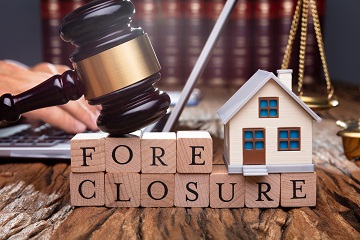
Are you a South Florida homeowner facing financial struggles and unsure of what options are available to you? If so, it’s important to understand the differences between short sale and foreclosure, two common solutions for individuals dealing with mortgage payments they can no longer afford. In this blog post, we will explain what short sales are, and provide a detailed comparison of the two. We will also introduce you to our law firm, Brian P. Kowal, P.A., and our experienced foreclosure defense attorneys who can help guide you through this difficult process.
What Is A Short Sale?
 A short sale is an agreement between a homeowner and their mortgage lender to sell the property for less than what is owed on the mortgage. This can be a viable option for homeowners who are struggling to make their mortgage payments and have little or no equity in their homes.
A short sale is an agreement between a homeowner and their mortgage lender to sell the property for less than what is owed on the mortgage. This can be a viable option for homeowners who are struggling to make their mortgage payments and have little or no equity in their homes.
In a short sale, the homeowner works with their lender to find a buyer for the property. Once an offer is received, it must be approved by both the homeowner and the lender. If approved, the sale proceeds are used to pay off as much of the mortgage balance as possible. The remaining balance is then forgiven by the lender.
What Is Foreclosure?
Foreclosure is a legal process in which a lender attempts to recover the amount owed on a delinquent mortgage by forcing the sale of the property. This typically occurs when a homeowner fails to make mortgage payments for a certain period, usually around 3-6 months.
The foreclosure process can vary depending on the state and type of loan but typically involves the lender filing a lawsuit against the homeowner. If the lawsuit is successful, the property will be sold at a public auction and any proceeds will go towards paying off the remaining balance on the mortgage. If the proceeds are not enough to cover the debt, the homeowner may still be responsible for the remaining balance. Contact our foreclosure defense attorneys today for more information.
The Major Differences Between Short Sales And Foreclosure
 1. Impact on Credit Score: Both a short sale and foreclosure will hurt your credit score. However, a short sale typically has a less severe impact as it is considered a “settled debt” rather than a foreclosure, which is seen as a “defaulted debt.”
1. Impact on Credit Score: Both a short sale and foreclosure will hurt your credit score. However, a short sale typically has a less severe impact as it is considered a “settled debt” rather than a foreclosure, which is seen as a “defaulted debt.”
2. Length of Process: A short sale typically takes longer to complete compared to a foreclosure. This is because the homeowner needs to find a buyer and get approval from the lender, which can take several months. Foreclosure, on the other hand, can be completed in as little as a few months.
3. Consequences on Future Homeownership: A short sale may still allow you to purchase another home in the future, depending on your credit score and other factors. However, foreclosure can make it difficult to secure a mortgage for several years.
4. Tax Implications: In some cases, a short sale may result in taxable income for the forgiven debt. However, there are certain exemptions and tax breaks available that may reduce or eliminate this liability. In contrast, foreclosure does not typically have any tax implications.
Pros And Cons For South Florida Homeowners
Both short sales and foreclosures come with their own set of advantages and disadvantages, and homeowners need to understand these before making a decision.
Pros of Short Sales:
1. Less Damage to Credit: A short sale is less damaging to your credit score compared to a foreclosure.
2. Possibility of Buying a Home Sooner: If you go through a short sale, you might be eligible to buy another home sooner than if you go through a foreclosure.
3. Control Over the Sale: In a short sale, you have a say in the sale of your home, unlike in a foreclosure.
Cons of Short Sales:
1. Time-Consuming: Short sales can be a lengthy process, often taking several months to complete.
2. Tax Implications: The forgiven debt from a short sale may be considered taxable income.
Pros of Foreclosure:
1. Quick Process: Foreclosures can be faster than short sales, providing a quicker resolution for homeowners.
2. No Tax Implications: Foreclosures typically don’t have tax implications.
Cons of Foreclosure:
1. Severe Impact on Credit: Foreclosure can significantly damage your credit score, affecting your ability to secure loans in the future.
2. Limited Control: In a foreclosure, the bank reclaims and sells the property, leaving the homeowner with little to no control over the process.
At Brian P. Kowal, P.A., our foreclosure defense attorneys understand the intricacies and implications of both short sales and foreclosures. We can provide you with the necessary guidance and legal assistance to navigate these difficult waters. Our goal is to help South Florida homeowners understand their options, make informed decisions, and start afresh with minimal impact on their financial future. Call us today at 954-990-7552!
